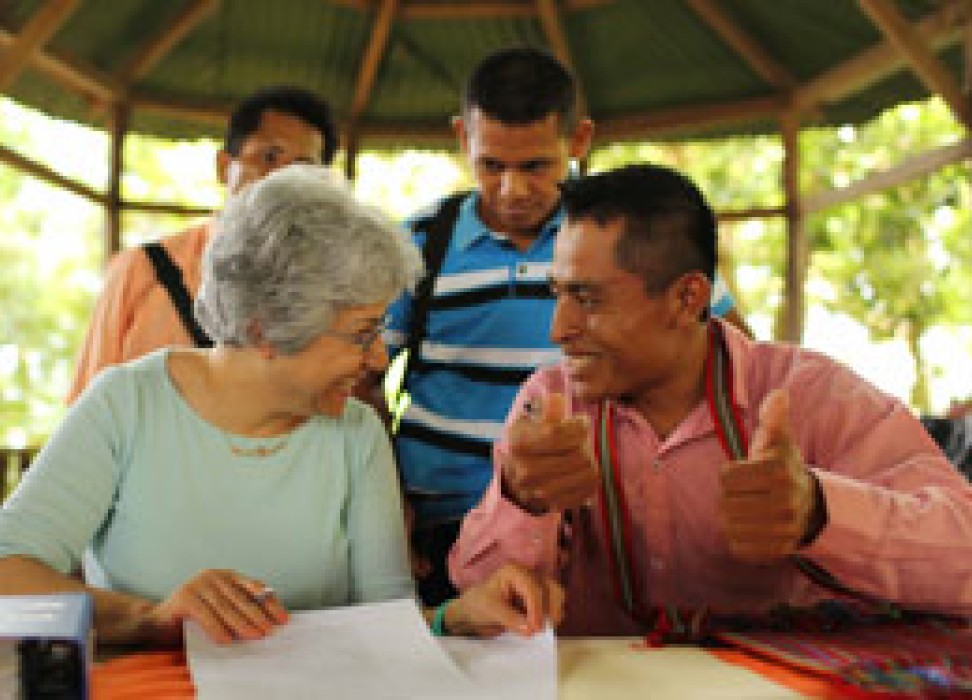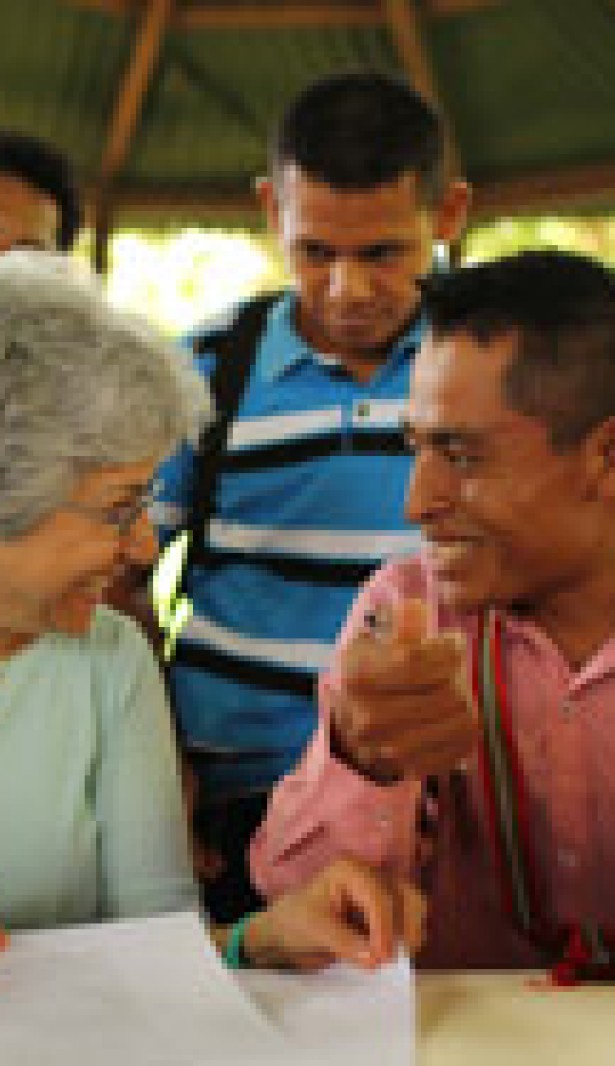Maya Programme: new paths towards the fulfilment of indigenous peoples’ rights in Guatemala
11 June 2014

"We want to continue receiving your support so we can exchange these experiences with other brothers and sisters. United we can raise our voice as indigenous peoples and as indigenous women”, said Ana Isabel Caal, an indigenous community leader from Guatemala, when she met with Deputy High Commissioner for Human Rights Flavia Pansieri during her latest visit to that country.
In the eastern region of Izabal, Pansieri spoke with representatives of indigenous communities and organizations participating in the Maya Programme, an initiative by which the UN Human Rights Office provides training on strategic human rights litigation on indigenous peoples´ rights. The Programme achieved results that went far beyond expectations.
The Deputy High Commissioner listened to the stories of three of the indigenous organizations that filed cases before judicial and administrative instances to demand the respect of their cultural and land rights.
In the first case, fifteen Maya-Q´eqchi´ communities requested the reform of a 1990 decree that outlawed settlements in the Sierra Las Minas Biosphere, which they had occupied for decades before the decree was issued. Their demand led to the establishment of a policy that recognizes land traditionally occupied by indigenous peoples - known as Indigenous Traditional Territories - within protected areas.
In another case, Ana Isabel Caal, representative of the Maya-Q´eqchi´s of Petén, presented a legal appeal after being barred from participating in discussions on the local budget at the Departmental Development Council. The Court ruling ordered to review the budget in accordance with the observations made by Caal, and to ensure that the Maya-Q´eqchi´ representatives are able to participate in all future deliberations of the Council. “We are leaving a mark for future generations”, said Caal. “No more silence, it is time to change.”
In the third case, eight Maya-Q´eqchi´ communities filed an appeal requesting the annulment of the illegal registration of their lands as private property by large landowners. As a result, an Appeals Court placed a two-year moratorium on any transaction related to the territory, thus preventing the sale of the Maya-Q’eqchi’ lands.
“I am deeply concerned about the multiple forms of discrimination that a person can suffer: for being indigenous, women and poor”, said Pansieri. “Our Office is determined to continue working together with you for the State to fully recognize your rights to land and cultural identity”.
The Maya Programme empowers indigenous organizations as rights holders, by training them in strategic litigation, and accompanying them before the national judicial system in the presentation of cases involving the exercise of their individual and collective rights.
The Maya Programme also aims at improving the capacity of judicial officials and promoting changes in the legal and political culture of judges as duty bearers, in order to enable them to issue rulings in accordance with international law related to indigenous peoples’ rights.
“The success stories you shared with me will also be a reference for other countries”, Pansieri added.
In its first phase, which spanned four years from 2009 to 2013, the Maya Programme provided technical training on strategic litigation to 20 organizations. Eighteen organizations filed cases before administrative or judicial bodies on various issues, such as their right to bilingual intercultural education; their right to be consulted on matters that concern them; their right to freedom of expression; and their land rights.
The second phase of the Maya Programme will begin in 2014 for a further four years during which assistance will be provided to a second batch of organizations with the same goal as the one Ana Isabel Caal represents: furthering the recognition of indigenous peoples’ rights in Guatemala.
11 June 2014

